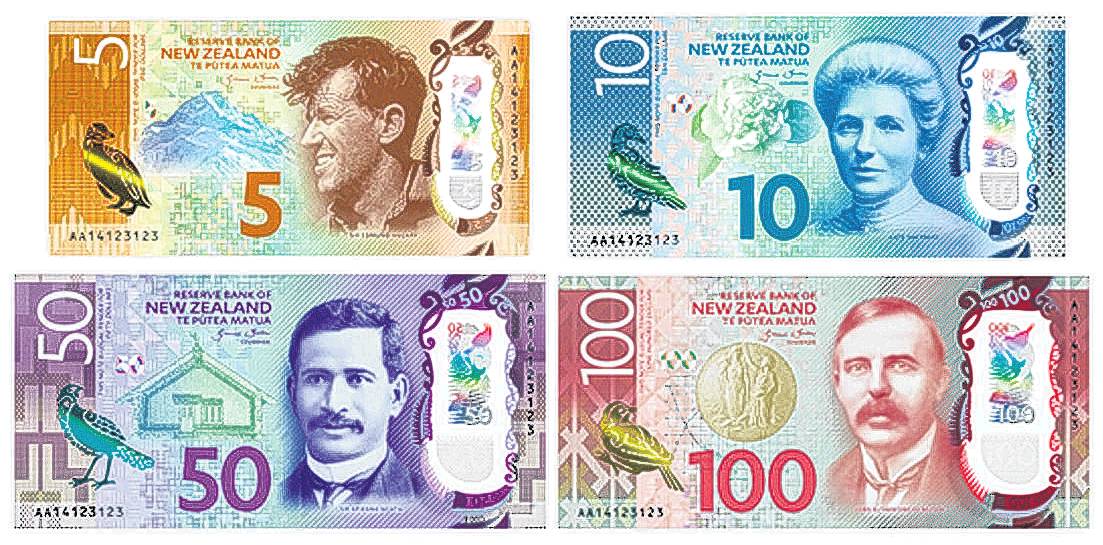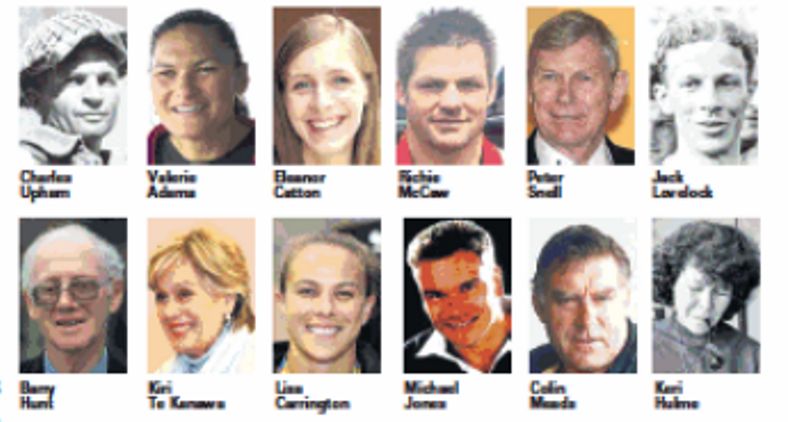
Joss Miller, of Dunedin, reflects on those who inspire.
A country needs heroes, legends and role models. These are often individuals but can be teams or groups whose unique achievements have helped to shape a sense of who we are as a nation. This can engender a feeling of pride and uplift and inspire generations to come. By way of example, particular outstanding individuals appear on our five, 10, 50 and 100-dollar bank notes. In ascending order these are: Edmund Hillary who, with Sherpa Tenzing, was the first climber confirmed to have reached the summit of Mount Everest; Kate Sheppard, the central figure in the New Zealand Suffragette movement that resulted in women obtaining the vote in 1893; Apirana Ngata, a leading Maori lawyer, MP and scholar; and Ernest Rutherford, a Nobel Prize winner for chemistry who later played a major role in splitting the atom.

In sport, All Black teams have consistently excelled on the international stage, having won three world cups and aspiring this year to a fourth. Their win to loss ratio is exceptional. Not surprisingly, there have been legends of the game including "Pine Tree" Meads and, more recently, Richie McCaw, both of whom have been (or soon will be) immortalised in statues in their provincial towns of Te Kuiti and Kurow. Michael Jones was not only a fine player but a man of considerable principle who continues to be a mentor and role model. New Zealand middle distance runners have provided some wonderful moments, starting with Jack Lovelock’s brilliant win in the 1500m at the Berlin Olympics in 1936. At the 1960 Rome Olympics, Peter Snell, a virtual unknown, won the 800m. Murray Halberg won the 5000m later that same day.
Four years on at the Tokyo Olympics, Snell won double gold, blitzing the fields over 800m and 1500m. For these and other record-breaking achievements he was voted New Zealand’s sports champion of the century in 2000. John Walker won the gold medal in the 1500m at the 1976 Olympics in Toronto. More recently, shot putter Valerie Adams has had a stellar Olympic and Commonwealth games winning record. Hamish Bond and Eric Murray are probably our most successful Olympic rowers. Lisa Carrington is full of power and class in the world of kayaking. We are the defending champions of the America’s Cup and a proud sailing nation. Kiri Te Kanawa was an opera singer of the highest standing on the world stage over a long period. In our literary scene, novelists Keri Hulme and Eleanor Catton have each been the recipient of the highly regarded international Man Booker prize. New Zealand’s most famous soldier, Captain Charles Upham, had the distinction of being awarded two Victoria Crosses for outstanding valour on the battlefield during World War 2.
However, what about those who inspire in less obvious ways and whose actions or advice can influence us either directly or indirectly in a way that can sometimes be life-changing? One thinks of Prof Mark Henaghan who retired recently from the Faculty of Law at the University of Otago. He was dean for 18 years and lectured mainly in family law for more than 40 years. His impact was enormous. Not just because of his enthusiastic and stimulating teaching but as a wonderful supporter and mentor to students. At his farewell hundreds of students past and present formed what ODT feature writer Bruce Munro described as "a human corridor that stretched 200m and they applauded".
Growing up in my home town of Balclutha many decades ago, one particular day at primary school stood out. On that occasion we followed our teacher over hill and down dale for no particular reason other than to absorb all that was natural. This included peering into ponds to observe the activities of frogs and tadpoles. We also rummaged under the bark of rotting trees to locate huhu grubs which he assured us were excellent bait for trout fishing. The sun shone brightly and nature’s sounds were abundant. This exhilarating day in the countryside helped spark young imaginations. It may have even inspired some to go on and study biology and science.
Barry Hunt transformed athletics in South Otago after moving to Balclutha in the 1960s. His wide knowledge, energy and enthusiasm was infectious. He coached and encouraged hundreds of athletes during those years. He was endowed with a phenomenal memory for times and distances in events. His talent was also recognised at the national level where he held administrative roles as well as being an athletics selector.
Most of us can recall somebody in our lives who helped and inspired us. It might only have been a word of encouragement, a piece of advice or a thoughtful comment. But looking back, we can see how invaluable and influential that can be.











